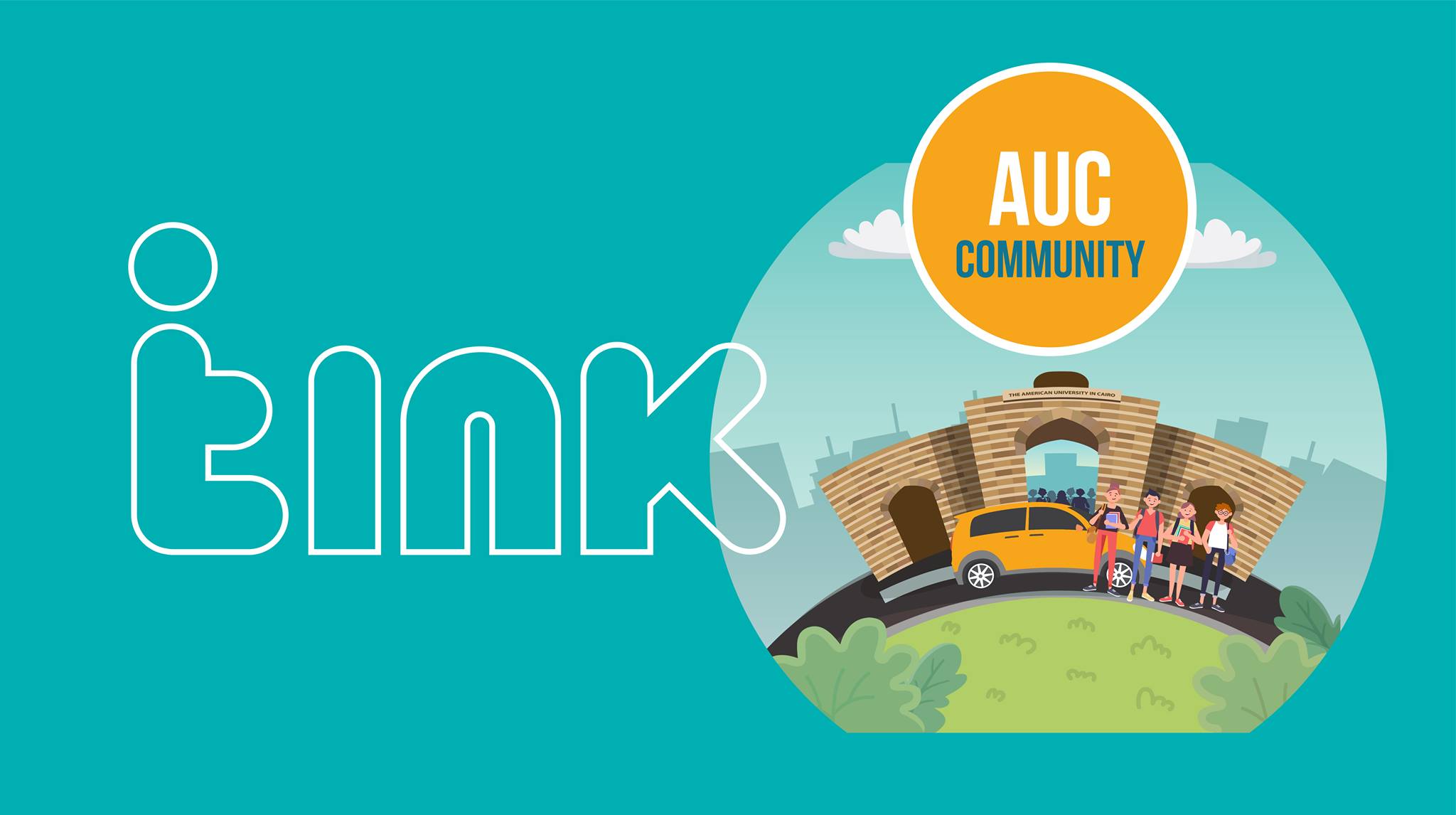Let’s Tink to AUC
By: Shaden Elsheikh
@shadenelsheikh
Hey, need a ride to campus?
If you’re one of AUC’s growing carpooling community, you’re in luck.
Tink is a new ride-sharing app that has recently launched an AUC-exclusive service as part of its pilot stage. The startup aims to create a cashless carpooling experience for drivers and riders.
Amr Aly, mechanical engineering alumnus, founded the ‘AUC Carpooling’ online Facebook community back in 2012 after the university campaigned for the idea through a short-lived website.
“I got really excited about the idea [of a carpooling project],” said Aly.
He was one of the few students who voluntarily helped spread the news about the university’s website and was really disappointed to see it not last.
“I guess it didn’t pay off as they expected and people weren’t interested,” said Aly.
Ahmed El Desouky, architecture alumnus who has witnessed and overseen the online community’s development over the years, said that it has over 800 active members that offer or need rides on a regular basis.
Similarly, the Tink startup helps facilitate carpooling between drivers and riders.
“It provides an affordable, safe and fun mode of transportation,’’ said Tamer El Mahrouky, one of Tink’s co-founders.
The Tink initiative was inspired by El Mahrouky’s desire to reduce the number of cars on Cairo’s streets as a way to fight traffic congestion and to reduce carbon dioxide emissions.
AUC students have been carpooling to campus for years. In fact, parking fees are waived for anyone who drives to campus with at least one passenger in the car to encourage carpooling.
Hania Hesham, psychology junior, said she carpools to campus with people who live in her residential compound.
“I don’t pay any money and save on gas. It’s also environmentally friendly,” she said.
Tink’s incentives to both drivers and passengers are not limited to sharing gas expenses.
Tink tokens, which amount to 75 Egyptian piasters, are used to pay for rides instead of actual cash. Users get tokens by either buying them off the mobile application or sharing their passengers. Drivers receive tokens based on the number of riders they commute with and the number of kilometers they drive.
Users are able to redeem their tokens by using them to take rides, plant trees, refill tanks and they can even exchange them for cash.
“These rides are almost 80 percent cheaper than on-demand service rides,” said El Mahrouky.
This service gives passengers the chance to take an affordable and safe commute offered by someone from their community.
“There are many opportunities that could happen besides taking a ride from point X to point Z. You can socialize, network and make new friends,” said El Mahrouky
But not everyone may be willing to take rides with strangers or even fellow students.
“I don’t really feel comfortable doing that [getting into a car with strangers]…I carpool mostly with friends” said Aisha Afify, an economics sophomore.
Tink AUC says it has this ‘fear’ covered.
A unique feature of Tink AUC is that after stating the desired time and destination, the application enables both drivers and riders to see if they happen to have any connection with their matched driver/passenger.
Tink users are able to see the drivers and riders’ gender, ratings and if they have any mutual connections. With that in mind, users are most likely to match with their friends, acquaintances or friends of friends.
Other personal information is only viewable if either party accepts the ride and agrees to make it visible.
The Tink AUC Facebook group acts as the starting point of the process where members post the rides they need or are offering. After, a minimum of two, people are found to be heading to the same destination at an agreed time, they use the application to pay the tokens and officially accept the ride.
Rahaf Abdulaziz, management information and communication technology graduating senior, said that having passengers helps ensure she’s awake [while driving] and prevents her from paying parking tickets, which is a great incentive for her to carpool to campus.
Tink AUC also aims to help solve the persisting parking issues on campus – with only 2250 spaces on campus, driving to campus is not the easy errand it may seem to be.
El Mahrouky urges faculty, staff and students to join Tink AUC in hopes that it will eventually cut down the number of cars on campus by half.
“There are 5000 to 6000 cars that come to campus everyday, why can’t they be 2000-3000?” said El Mahrouky.
“You can drive for a few days, earn some tokens and then use these tokens to take rides without paying anything,” said El Mahrouky.



